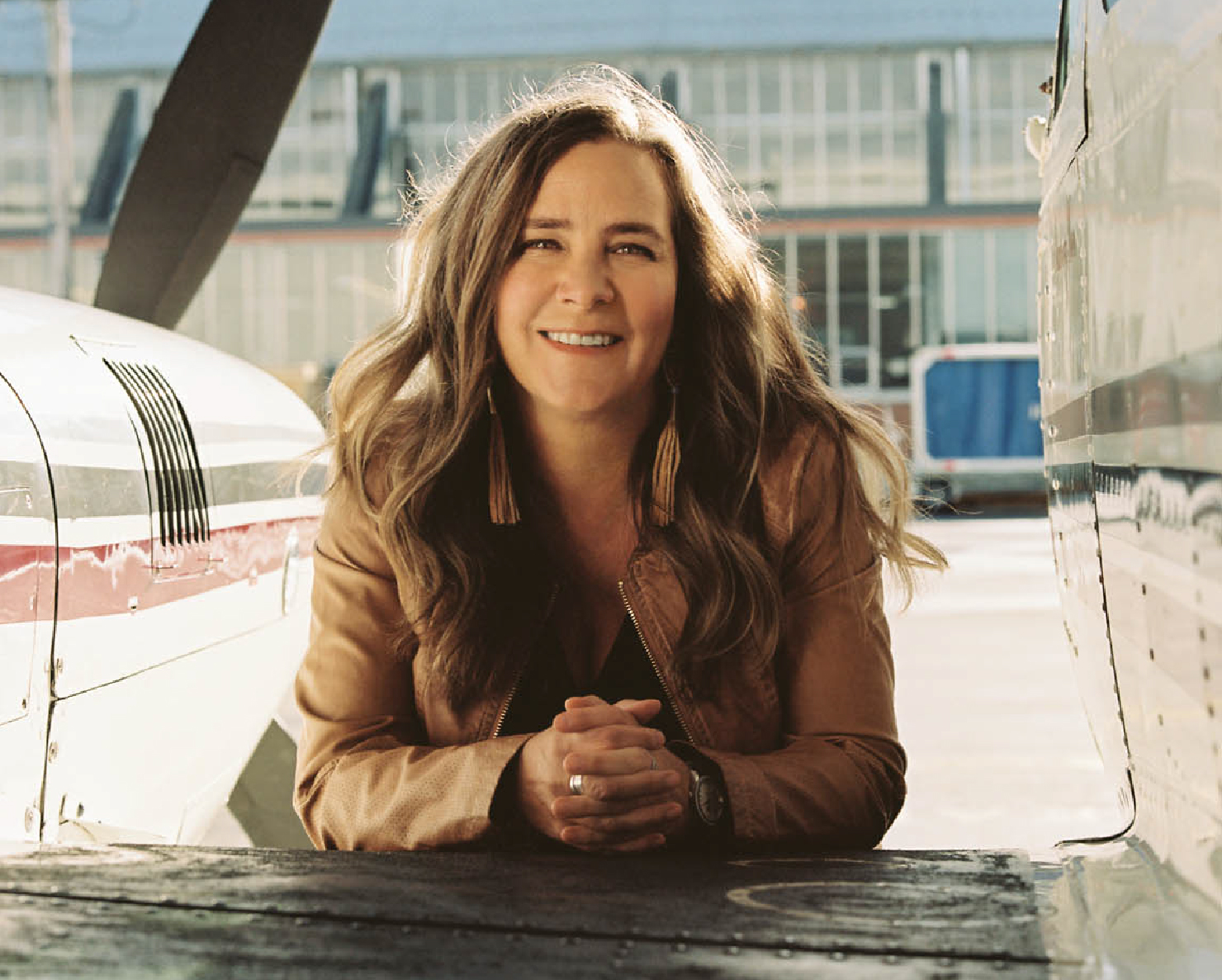Teara Fraser still remembers every detail about her inaugural flight in a small airplane—an aerial tour over Botswana’s Okavango Delta in the autumn of 2001. “I thought, oh my gosh, this pilot has the coolest job ever,” she recalls. It was the trip of a lifetime for Fraser, then a 30-year-old single mother, who had saved for a year to visit Africa for the first time. High above a verdant tapestry of lagoons and forests, she had an epiphany. “That experience changed everything,” she tells me. That same trip, she boarded another tiny plane to skydive. “I wanted to touch everything in the airplane,” she says. “I can still tell you everything about that moment. I said to myself, I don’t care what it takes, I want to fly an airplane.”
For most of us, such life-changing revelations fade with our vacation tans. Not so with Fraser, who enrolled in flight school at the Boundary Bay Airport in Delta as soon as she returned home to the Lower Mainland: “There was a moment where I thought, if I slow down, even for a second, I’ll lose my momentum.” At the time, she was caring for her two young children and working entry-level jobs to make ends meet. A year later, she was licensed as a commercial pilot. Now 51, she is the founder and owner of two aviation companies: Iskwew Air, which offers chartered flights and scheduled service between Qualicum Beach and Vancouver, and the newly launched aero-tech company Elibird Aero, based in Delta.
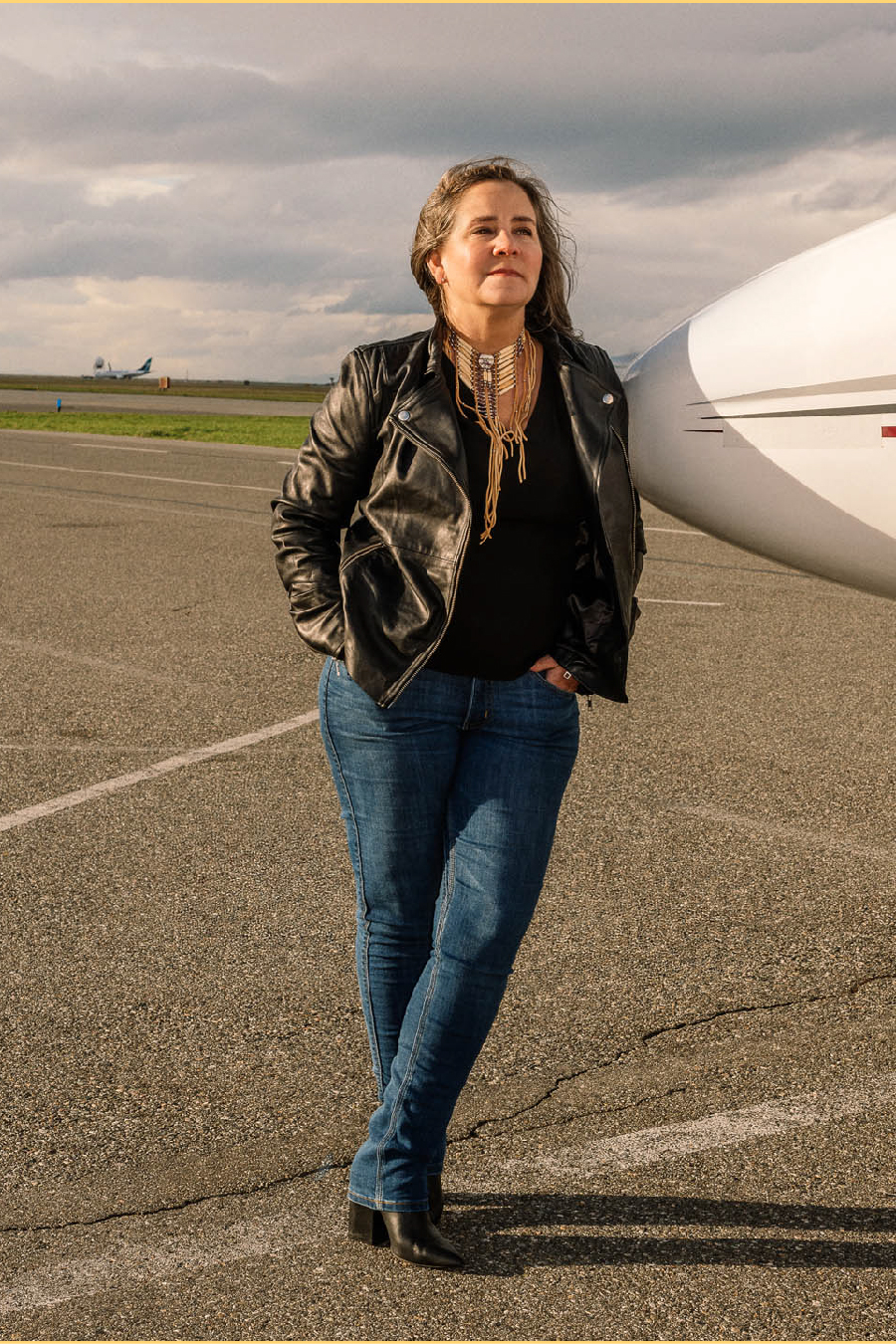
Focused on decarbonization through all-electric flight training and technical innovation, Elibird Aero is currently acquiring two Bye Aerospace eFlyer 2 airplanes— lightweight electric aircraft designed for flight training.
Falling in love with flight was followed, shortly, by falling in love with entrepreneurship. As a junior pilot, Fraser worked for an aerial survey company and then, in 2010, she launched her own. Though she had no background or education in business, she jumped in with both feet—something she perceives as an asset. “You almost have to enter entrepreneurship with a level of naivety,” she explains. “It’s not for everyone, to be sure. It comes with a lot of highs and lows, a lot of responsibility, and not a lot of certainty. But I think that’s why I enjoy it. Because challenge and reward are always interconnected.”
Called Kîsik Aerial Survey after the Cree word for sky, Fraser’s first business put her Métis values and identity at the heart of her work. Though she was born in Hay River, a small town in the Northwest Territories, and has spent most of her life in B.C., Fraser’s family has roots in Fort Chipewyan in Alberta.
Fort Chipewyan, on the edge of Lake Athabasca in the northeast corner of the province, is the oldest continuously inhabited settlement in Alberta, and Fraser can proudly trace her family back for generations. But like many Indigenous people, she grew up away from her culture. Her grandfather was a residential school survivor, and her father died when she was just three years old. It wasn’t until she was an adult that she began to find her way back with the support of her kin.
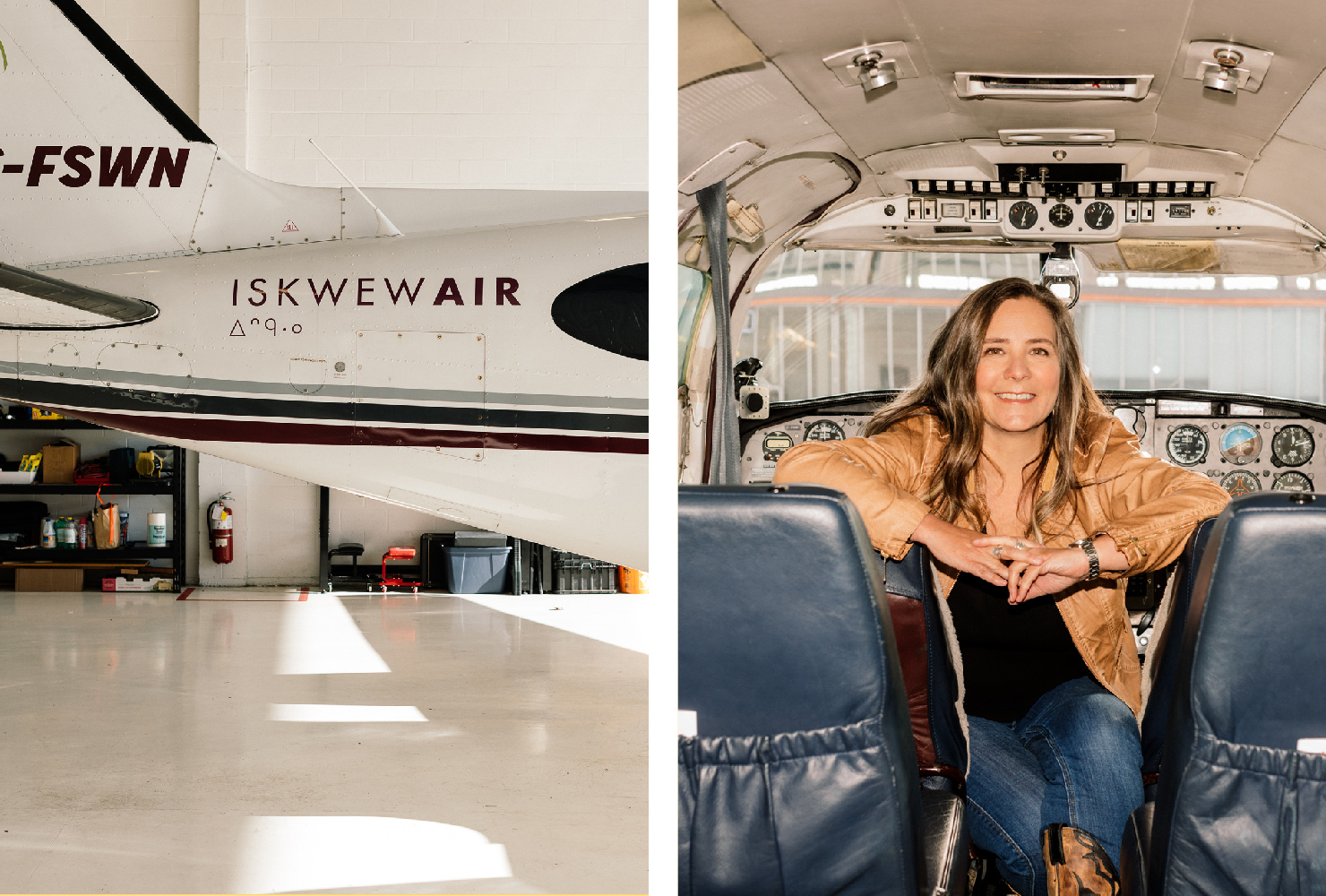
Her voice catches as she talks about her relationship with the late Fred “Jumbo” Fraser, an Elder and community leader, who attended Fraser’s celebrated launch of Iskwew Air. “He was one of the most important people in my world, and taught me to always be proud of who I am, as a Métis person.”
Fraser sold Kîsik in 2016 and founded Iskwew Air three years later. Iskwew (the pronunciation, iss-kway-oh, is featured prominently on the company website), which means “woman” in Cree, claimed space in an industry where fewer than six per cent of executives are women.
“I fly in a plane with Cree syllabics on it. Our mere existence is disruptive.”
“It’s Marketing 101—don’t name a business something people can’t say,” she jokes. “But it opens up a conversation. I chose it as an act of reclamation—of womanhood, of language, of matriarchal leadership.”
When she walks into the South Terminal at YVR and sees the name of her company, she feels the thrill of recognition, a place for Indigeneity that didn’t exist until she carved it out. “I fly in a plane with Cree syllabics on it,” she marvels. “Our mere existence is disruptive.”
Since launching Iskwew, Fraser has been lauded for her leadership in the aviation industry, with much of the coverage focusing on her singularity as the first Indigenous woman to start her own airline. She’s spoken often about the need to make aviation a more inclusive and diverse industry, a point she’s grown weary of raising. “Entrepreneurship can be a lonely space, and it can get really tiresome to be the odd one out all the time,” she says. “I’m seen as an equity advocate, and I love that, but I want there to be more people talking about it.”
Beyond her commitment to carving out space for diversity in aviation, Fraser is passionate about sustainability, which she sees as critical for the aviation industry and has championed through Iskwew Air since its inception. “There’s nothing more important in our industry than finding ways to walk more softly on Mother Earth.”
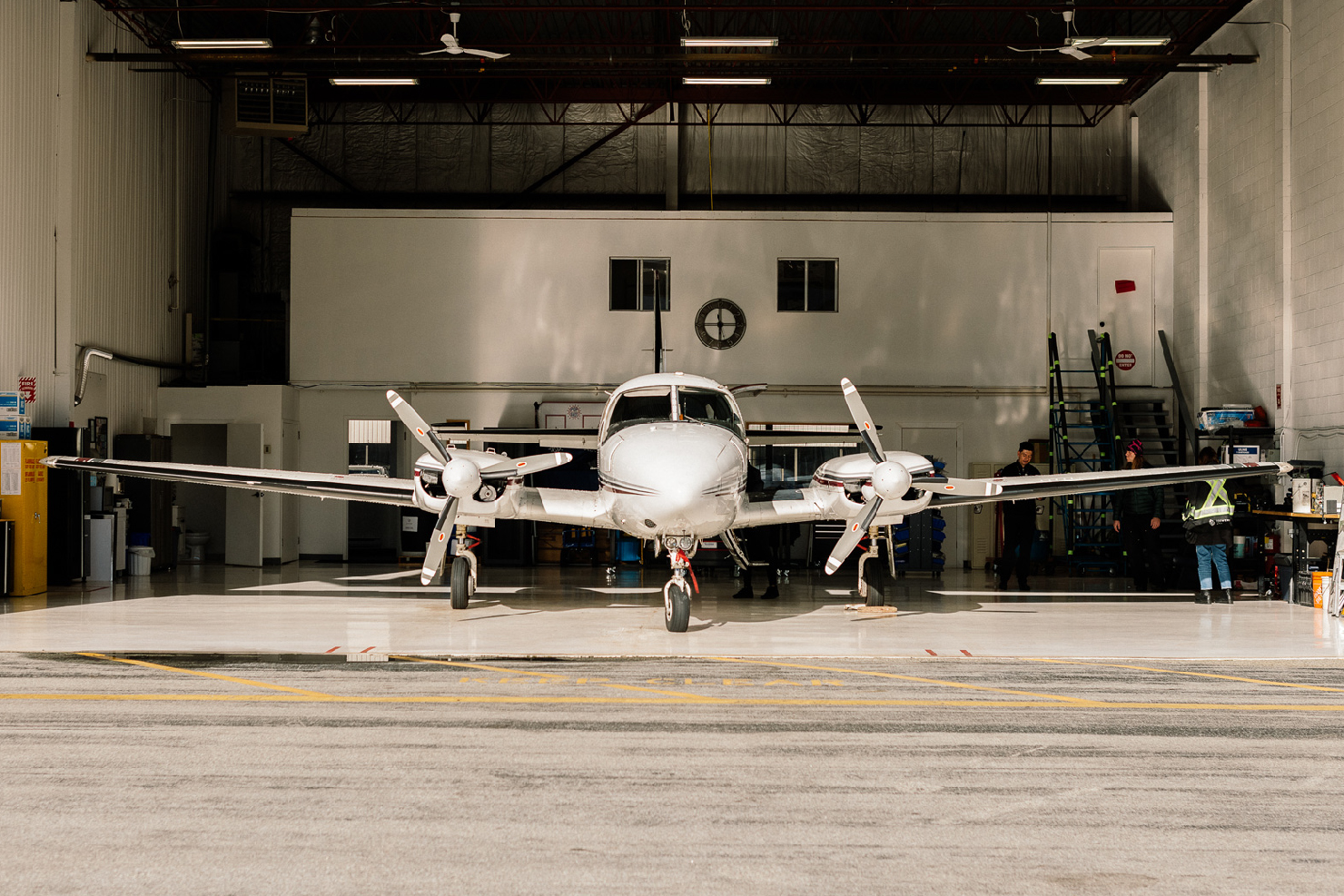
She sees this work as a kind of rematriation, centring the wisdom of women, who have historically been honoured as leaders in Indigenous communities and stewards of the land.
Fraser is recovering from a respiratory virus, contracted from her one-year-old granddaughter, which scuttled our plans to meet in person. Her lingering cough punctuates our telephone conversation, which takes place two days after the launch announcement of Elibird Aero, and one day before she is scheduled to leave for her first vacation in three years. “I don’t have time to be sick right now,” she says with a sigh. “But the body decides.”
It’s not the first time fate has thrown her a curveball: Iskwew Air received its operating permit in October 2019, just a few short months before COVID-19 forced her to rethink the entire business plan. “It’s been a very, very hard three years. You can see why I really need a vacation,” she says, laughing. “But because of the hard work of the whole team, we persevered.”
Despite the challenges, Iskwew has established several flights a day between Qualicum Beach and Vancouver, added a second airplane to its fleet, and grown to include 10 people.
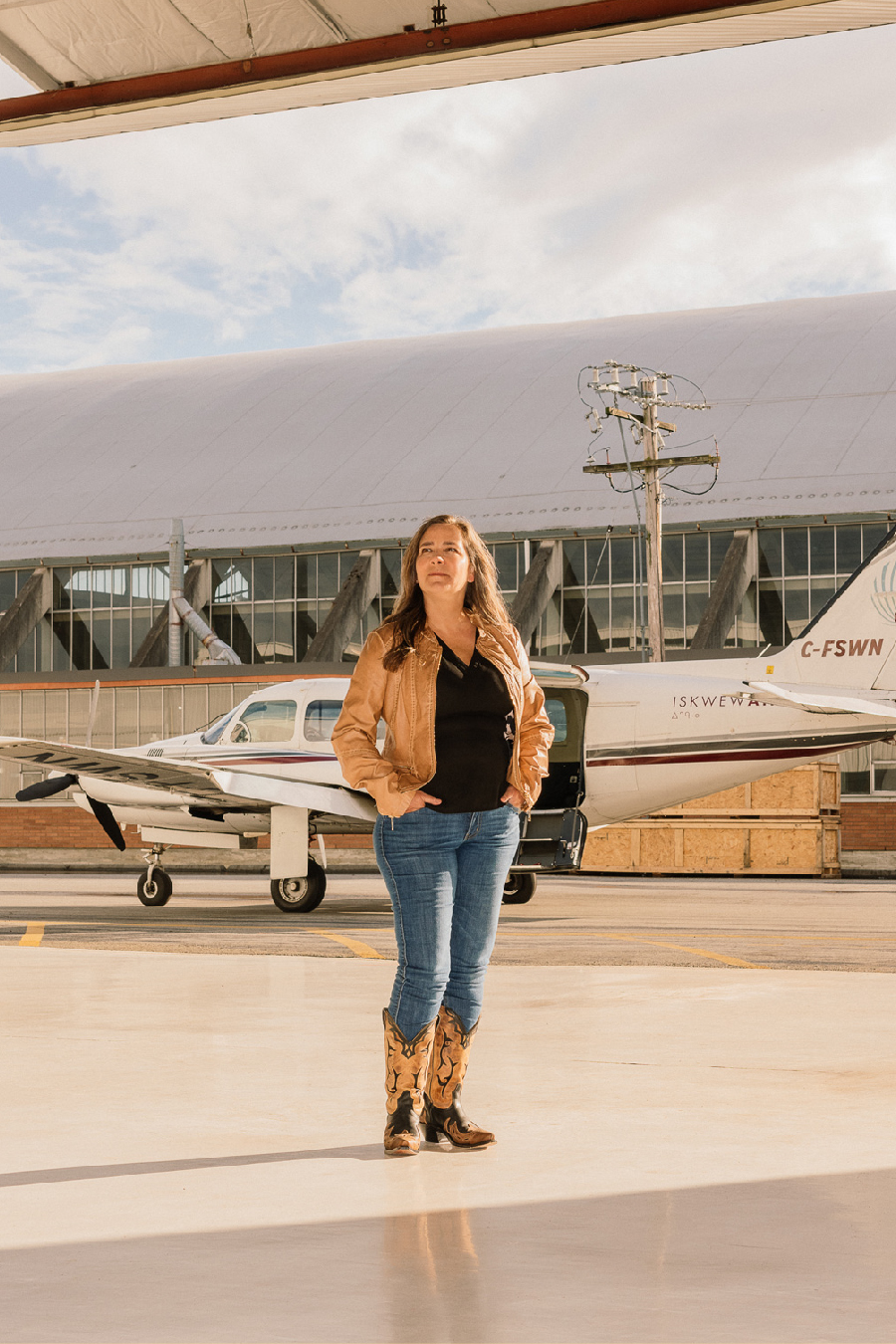
“I want to see more women and Indigenous people leading in this space. And what I really want is just for everyone to fall in love with whatever they’re doing,” she says. “To feel that spark, that passion. I just happen to think flying is cool,” she adds. “And I want people to know that it’s within reach for them, that it’s possible.”
It’s been more than two decades since that first flight over the lush wetlands of Botswana. All these years later, does she feel the same sense of awe when she takes to the sky?
“Absolutely,” she answers emphatically. “Every time.”
Hair and makeup by Melanie Neufeld for Lizbell Agency. Read more from our Spring 2023 issue.

